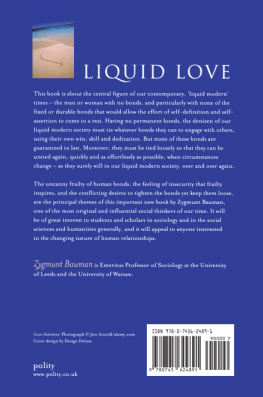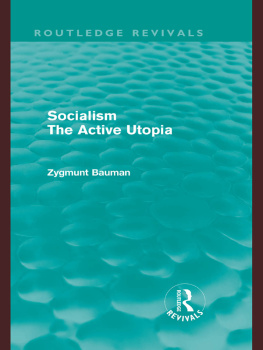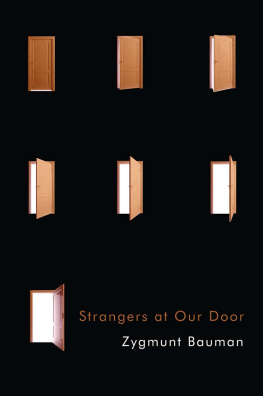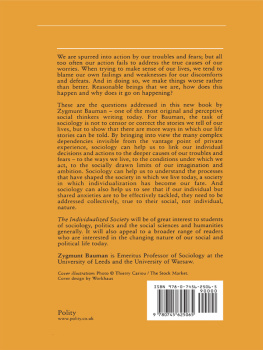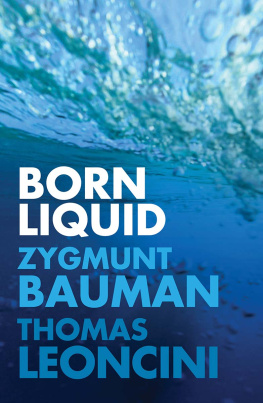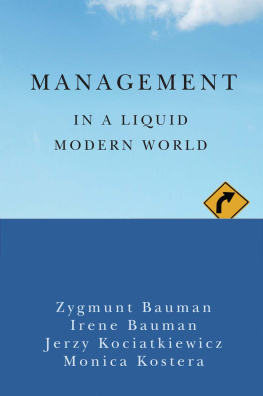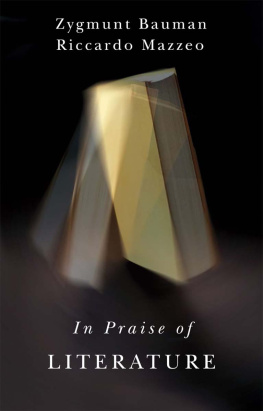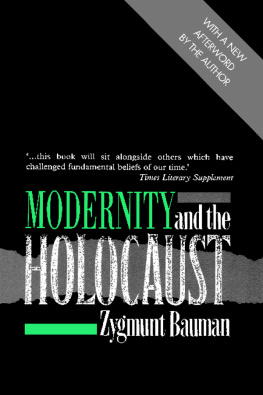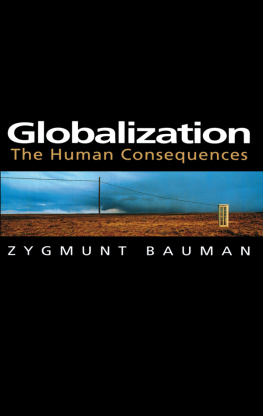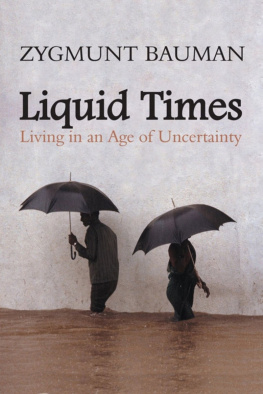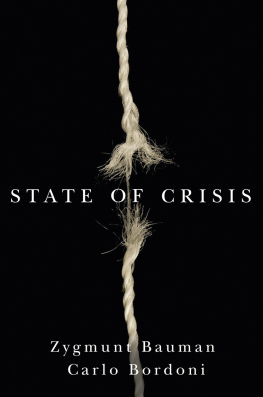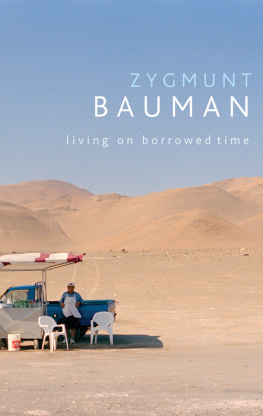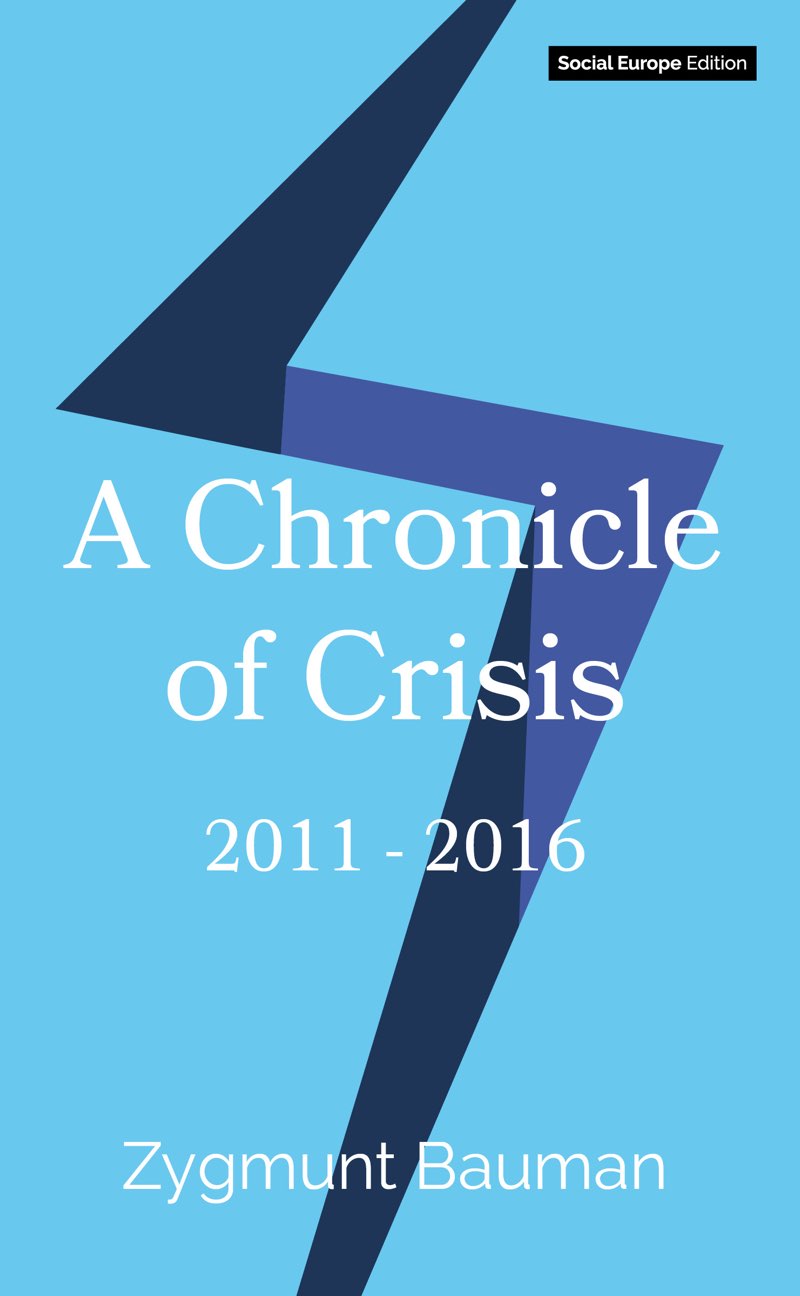On Zygmunt Bauman
B y Neal Lawson
Z ygmunt Bauman, who died on the 9th January 2017 aged 91, was often spoken of as the most influential sociologist of his era. Born in Poland, he had lived in the UK since 1971, settling in Leeds where he was professor of sociology until 1991, and subsequently emeritus. It was in his retirement that a crescendo of writing and talking poured out of him. Better known outside the UK, a vast array of thinkers and activists have been guided by his brilliant mind .
Baumans big idea is that of liquid modernity. He described a society somewhere between the solid modern structures and cultures of the early to mid 20th century and the relativism of post-modernity. The era of secure jobs and institutions through which we navigated our lives with pretty well ease and certainty was being lost, giving way, some saw, to the supposed melting into air of post-modernity, where everything was entirely relative. In describing this half-way house as liquid, Bauman echoes Antonio Gramscis idea of the morbid symptoms that appear in the interregnum when the old is not yet dead and the new is not yet born. One of the many metaphors deployed by Zygmunt for these liquid modern times was one of skating on thin ice a life in which only speed stops us from falling through into the icy waters below .
This breathless, insecure and exhausting notion of liquid modernity is then encapsulated in the second big shift identified by Zygmunt: from a society that essentially reproduces itself through production to a society based around consumption. Once upon a time, we knew ourselves, and each other, by what we did, now it is by what we buy. Here the metaphor is of a society epitomised not by the savings book, with its slow and steady build-up of resources to buy cherished or necessary items, but by the instant gratification offered by the credit card. In the consumer world we compete with each other to be the finest purchasers of things we didnt know we needed, with money we dont have, to impress people we dont know. Sadly for us there is no end point to this endeavour. It is a race without end. So why do we run it ?
The Bauman book that had the most influence on me is Work, Consumerism and the New Poor. In it he describes this shift from production to consumption and through it the effect on the poor. In a producer society the poor undoubtedly suffered. But they suffered together, in communities of solidarity, and they were kept just fit, healthy and educated enough to act as a reserve army for war or any upturn in the economy. It may be temporary or cyclical but society needed them. To be poor in a consumer society is to be totally unnecessary. If we are defined by what we buy, then what is the point of you if you cannot afford to shop? The poor in such a society are merely teased (or worse) as they window-shop their way through a life of perpetual humiliation in which even the bonds of class have evaporated. It is why the poor cherish the brands they can get their hands on by fair means or foul to be normal for a moment .
But the poor today do have a role, as Zygmunt sharply identifies, and it is to police us. They are othered, humiliated and despised to act as a warning to the rest of us, to never fall off the consumer treadmill into the abyss of the only thing worse than a life on that treadmill - the life of not being on it. More than anything we fear joining the ranks of the undeserving poor .
Why has this happened and why has so little been done about it? Zygmunt knew. In In Search of Politics he exposes the separation of politics from power, and power from politics, as financial flows and corporate investment escaped the nation state and its legal jurisdiction and went global. All this and more drew a line under the solid and predictable culture of the 20th century and sent us hurtling into the fragility and fluidity of a 21st century culture where everything feels temporary and until further notice .
In all this work Zygmunt understood the crisis of social democracy, whose success was rooted in the old solid jobs, fixed identities and bounded nation states. What is the role for a party called Labour if what defines us is consumption? How could we be fully human when the bonds of solidarity were stretched to breaking point in a consumer race in which enough is never enough ?
Zygmunts books and essays are not always easy to read. The language can be opaque, but the shafts of light and insight are intense. The analysis is bleak, but uplifting if you believe it to be accurate. For how can we begin to wrestle with the precarious and insecure world we live in unless we understand the scale of the problems we face ?
His work is followed by many. He could pack any university lecture hall in Europe and did. His many books and articles avidly read, especially amongst the young. But he never influenced the established political classes. Not yet anyway .
He was loath to set out a blueprint for the more humane society he desired. The one idea he would go back to again and again was universal basic income. Today the idea of such a citizens income is featured regularly in articles in the Financial Times and elsewhere, was on the agenda of the 2017 World Economic Forum at Davos and is being trialled in Canada, Finland and the Netherlands. The Bauman Institute at Leeds will stoke the fires of his ideas, as will myriad thinkers and activists across the globe who have been captivated by his haunting insights. He was an avid writer on the Social Europe website and believed passionately in the European cause .
All of these themes liquid modernity, the end of the producer society, poverty/inequality, the Other, the decline of the nation state and the need for transnational political union and Europe as well as others such as migration, the false sense of community on the Internet, right-wing populism and economic nationalism find their place here in this collection of twenty-four contributions he wrote for Social Europe from 2011 until his death. Many of them are wonderfully prescient about what was/is coming. They all pay testimony to his genius .
Zygmunt kept thinking and writing, right up until the end (his last piece here written just eight days after Donald Trumps shocking victory). He remained what the Germans call a Vordenker, constantly in touch with contemporary cultural references and forward in his thinking as he crafted his arguments .
He was a frail and slight man but had an enormous sense of intellectual power, generosity and fun. In his ramshackle, books- and papers-filled house on the edge of Leeds, as he served you vodka at noon and brought through an endless supply of Polish snacks, you knew you were in the presence of greatness. The abiding image that fills my mind when I think of this small man and his huge intellectual power, is that of Jedi master Yoda. In all the bleakness of his analysis, Zygmunt provided hope where there was only despair. He told us quite simply: the good society is the one that knows it is not good enough .


